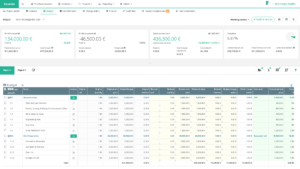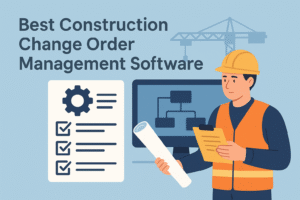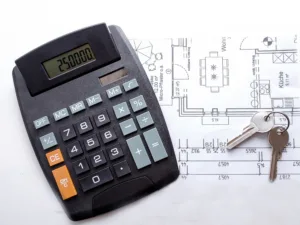Table of Contents
What is Construction Cost Control?
Construction cost control is a systematic approach to managing and overseeing the financial aspects of construction projects. It encompasses various activities to ensure a project stays within the allocated budget from inception to completion. This process is not just about keeping costs under control; it’s about maximizing value for every dollar spent, ensuring financial transparency, and securing the project’s financial viability.
At its core, construction cost control involves:
- The detailed planning of the project’s budget.
- Continuous monitoring of actual costs.
- Forecasting future expenditures.
- Making adjustments as necessary to avoid budget overruns.
It’s a dynamic process that requires constant attention and flexibility, as project needs and external factors can change rapidly. The ultimate goal is to complete the project on time, within the approved budget, and by the specified quality and standards.
Importance of Cost Control in Construction
The importance of construction cost control cannot be overstated. It directly influences the project’s profitability, client satisfaction, and the construction firm’s reputation. A well-executed cost control strategy can lead to significant savings, while poor cost management can result in financial losses, project delays, and damage to professional relationships.
Construction cost control is the backbone of project management, ensuring that construction projects are completed in the most efficient, economical, and effective manner possible. It requires a blend of technical knowledge, financial acumen, and strategic foresight—qualities that the construction cost controller embodies.
Responsibilities
The construction cost controller stands at the intersection of project management and financial management; his task is to ensure that construction projects are within budget and that financial forecasts are met. The construction cost controller needs to conduct cost estimates and improve the project cost control process to mitigate unnecessary construction project costs.
This role is broad and detailed, requiring a delicate balance of strategic oversight and close attention to project cost details. Below are the key responsibilities that define the role of a construction cost controller:
- Budget Preparation and Management: Develop and maintain the project budget; forecast project costs based on historical data, market trends, and project specifics.
- Cost Monitoring and Reporting: Regularly monitor actual project expenditures against the budget and forecast future costs. Prepare detailed cost reports and financial summaries to present to project managers and senior management.
- Change Order Management: Evaluate the financial impact of changes in project scope, including additional work or alterations, and incorporate these into the project budget.
- Contract Management: Work closely with the procurement team to manage contracts, including reviewing bids, making recommendations, and ensuring contract compliance regarding project costs.
- Risk Analysis: Identify potential financial risks associated with project delays, cost overruns, and other issues. Develop and implement strategies to mitigate these risks.
- Collaboration with Project Teams: Work closely with project managers, engineers, architects, and other stakeholders to ensure cost objectives are met. Provide cost-related input and advice during project planning and execution phases.
- Financial Forecasting and Analysis: Use financial modeling to predict outcomes of project financial performance. Analyze variances between actual and budgeted or forecasted costs and recommend corrective actions.
- Process Improvement: Continually assess and improve cost control methods, tools, and processes to enhance the efficiency and accuracy of cost management.
Skills and Qualifications
The role of a construction cost controller requires a unique combination of skills and qualifications that include both technical knowledge and soft skills. These professionals should navigate complex financial landscapes, communicate effectively at different levels of the organization, and implement strategic cost-saving measures. Below, we discuss the essential skills and qualifications critical to success in this role.
Educational Background
- Bachelor’s Degree: A degree in construction management, civil engineering, finance, accounting, or a related field is typically required. This foundational education provides the necessary knowledge in construction principles, financial management, and project planning.
- Advanced Degrees (Optional): While not always required, advanced degrees such as a Master’s degree in Business Administration (MBA) or Master’s degree in Construction Management can enhance a candidate’s understanding of business and construction practices, offering a competitive edge.
Experience
- Practical Experience: Hands-on experience in construction management, cost estimation, or a related field is invaluable. Employers often look for candidates with a track record of successfully managing project finances.
- Leadership and Teamwork: Experience in leading teams or working collaboratively within a project management team is beneficial, as it highlights the ability to manage and communicate effectively.
Essential Skills
- Analytical Skills: The ability to analyze financial data, interpret cost reports, and forecast expenses is crucial. A keen eye for detail helps identify discrepancies and potential cost savings areas.
- Financial Acumen: Proficiency in financial principles, budgeting, and accounting practices is essential for effective cost control and financial reporting.
- Technical Proficiency: Knowledge of construction management software (e.g., Procore, PlanGrid) and financial software (e.g., QuickBooks, Sage) is necessary for efficient tracking and reporting of project costs.
- Communication Skills: Excellent verbal and written communication skills are vital for liaising with project stakeholders, negotiating with suppliers, and presenting financial reports to management.
- Problem-Solving: The ability to quickly identify problems and devise practical solutions is critical, especially when addressing budget overruns or unexpected project challenges.
Certifications
- Certified Construction Manager (CCM): Offered by the Construction Management Association of America (CMAA), this certification demonstrates expertise in construction management, including cost control.
- Certified Cost Professional (CCP): AACE International certification validates cost management, planning, and control proficiency.
What is the construction cost controller’s salary?
The salary for a construction cost controller varies significantly based on location, experience, and the specific sector within the construction industry. However, here are the general salary ranges for different levels of the position:
- Entry-Level (Project Cost Controller I): For those just starting in the role or with a few years of experience, salaries can range from approximately $63,700 to $78,500 annually, with an average salary of around $70,100.
- Mid-Level (Project Cost Controller II): With more experience, typically several years in the field, the salary range can increase to between $76,300 and $101,300 annually, with an average salary of about $86,800.
- Senior-Level (Project Cost Controller III): For highly experienced professionals who may lead projects or have specialized knowledge, salaries can range from $91,800 to $117,400 annually, with an average of around $104,900.
Additionally, the overall compensation package for a construction cost controller might include bonuses, profit sharing, or other financial incentives, which can significantly affect the total pay.
These figures provide a general guide and can vary based on factors such as the specific employer, geographic location, and current market conditions. Consulting industry-specific salary surveys or job postings in your area is recommended for the most accurate and up-to-date salary information.
References
https://www.glassdoor.com/index.htm
Frequently Asked Questions
What is a construction cost controller?
A construction cost controller is a professional responsible for managing and overseeing a construction project’s budget and financial aspects. They ensure that projects are completed within the allocated budget, identifying cost-saving opportunities and mitigating financial risks.
What qualifications do I need to become a construction cost controller?
A bachelor’s degree in construction management, civil engineering, finance, or a related field is typically required. Additional certifications, such as Certified Cost Professional (CCP) or Certified Construction Manager (CCM), and practical experience in construction or financial management are highly beneficial.
What skills are essential for a construction cost controller?
Essential skills include analytical thinking, financial acumen, proficiency in cost management software, understanding of total cost management concepts, excellent communication skills, and the ability to solve problems effectively. Cost control relies heavily on the project manager, who improves the project’s cost performance through effective cost planning, variance analysis, and cost engineering. Technological proficiency and adaptability to new tools and methods are also increasingly important.
How much does a construction cost controller earn?
Salaries for construction cost controllers can vary widely based on experience, location, and the size of the project or company. Generally, salaries range from mid-level to high, reflecting the importance and responsibility of the role in ensuring project success.
What are the career advancement opportunities for a construction cost controller?
Career advancement can lead to senior cost controller positions, project management roles, or director-level positions overseeing broader construction finance and management aspects. Continuous education and specialization in sustainability or digital construction technologies can open additional opportunities.
How is the role of a construction cost controller changing?
The role is evolving with new technologies, such as BIM and AI, and a greater focus on sustainability in construction projects. Cost controllers are becoming more involved in strategic decision-making, requiring a blend of technical knowledge and soft skills.
Can construction cost controllers work in industries other than construction?
While the role is specifically tailored to the construction industry, the skills and expertise of a construction cost controller are transferable to any industry that requires project management and financial oversight of large-scale projects.
What is the impact of economic downturns on construction cost controllers?
Economic downturns can increase construction cost controllers’ challenges as budgets become tighter and the importance of cost-saving measures grows. However, their role becomes even more critical during these times, highlighting the value of effective cost control in ensuring project viability and profitability.
About the Author

Mikk Ilumaa
Mikk Ilumaa is the CEO of Bauwise, a leader in construction financial management software with over ten years of experience in the construction software industry. At the helm of Bauwise, Mikk leverages his extensive background in developing construction management solutions to drive innovation and efficiency. His commitment to enhancing the construction process through technology makes him a pivotal figure in the industry, guiding Bauwise toward setting new standards in construction financial management. View profile
Related posts
Read our articles where you can find useful and relevant information about construction cost control:






